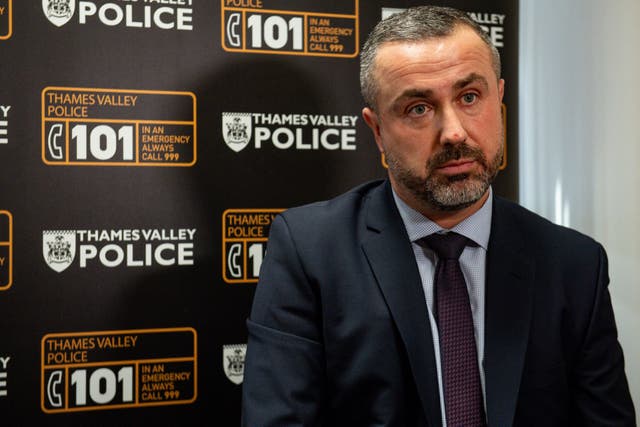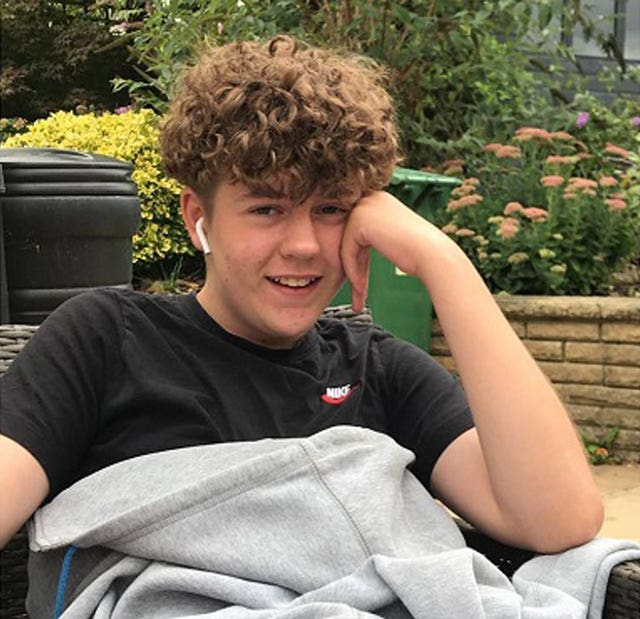The detective leading the investigation into murdered school boy Olly Stephens described the case as “one of the most shocking” of his career, and said social media speculation risked scuppering attempts to bring the 13-year-old’s young killers to justice.
Detective Chief Inspector Andy Howard, himself a father to a teenage boy, described how many people in the community are still “struggling to come to terms with the fact that this has happened”.
He said social media played a crucial role in building a case against the three teenage perpetrators.
But the welter of rumour and speculation online proved an additional challenge to detectives, who appealed on police social media channels for people to avoid speculation amid concerns about possible revenge attacks.
It included a claim that Olly was stabbed to death after a £154.94 bounty was placed on his head by a girl. The allegation was shared tens of thousands of times on social media in the hours after the murder, before being disregarded as “fake news” by detectives.
Some of the 200 Thames Valley Police officers working on the investigation had to contact bloggers and online commentators amid concern they might prejudice the case.
Mr Howard told the PA news agency: “One of the challenges in the very early stages of the investigation was an awful lot of speculation.
We are continuing to investigate the tragic death of Olly Stephens, who died in Emmer Green, Reading on Sunday.
We are aware of posts on social media sharing material which may be evidential as well as naming individuals who may/may not be connected to our investigation.
1/4 pic.twitter.com/CrnG4C9OPw
— Thames Valley Police (@ThamesVP) January 6, 2021
“And this (the ‘bounty’ allegation) was a prime example, ultimately, of one of those posts that was… an embellishment.
“We had to go to some online bloggers and people who were posting blogs and stories and reporting on the case, perhaps not realising what the reporting restrictions were.”
He added: “Ultimately, the evidence provided a very strong case against the defendants.
“We were really more concerned around the wider risk and repercussions, and people taking matters into their own hands, which clearly would have been, at best, very unwise, and, at the worst, against the law.
“We just wanted to try and minimise the risk of that happening.”

Olly’s trial heard evidence of social media messages involving the killers, including the older boy saying he “hated (Olly) with a passion”, and that he would “probably end up killing him”.
Mr Howard said the decision to present the case based on social media content meant evidence was already corroborated, and prevented young witnesses having to come to court.
Some of the social media evidence was also gathered by Olly’s family in the hours after the tragedy, at Bugs Bottom field in Emmer Green, Reading, Berkshire, on Sunday January 3 this year.
Officers then brought in street slang experts to interpret some of the messages.

Mr Howard said: “It is one of the most shocking cases that I’ve dealt with, in my time as a senior investigating officer.
“Any 13-year-old being murdered in these circumstances is shocking.
“When it happens at the hands of children of the same age, people who are Olly’s peers, it takes on an even greater magnitude.
“In that respect. I think there’s a lot of people in Caversham who still are struggling to come to terms with the fact that this has happened, where it’s happened.
“We shouldn’t as a society accept any 13-year-old being killed in any environment.
“But I think the area that surrounds where Olly was killed, around his home address where all of these people – essentially central to the investigation – lived, that has particularly resonated and I think it’s something that will probably sit heavy on this community for quite a long time, sadly.”




Comments: Our rules
We want our comments to be a lively and valuable part of our community - a place where readers can debate and engage with the most important local issues. The ability to comment on our stories is a privilege, not a right, however, and that privilege may be withdrawn if it is abused or misused.
Please report any comments that break our rules.
Read the rules hereComments are closed on this article